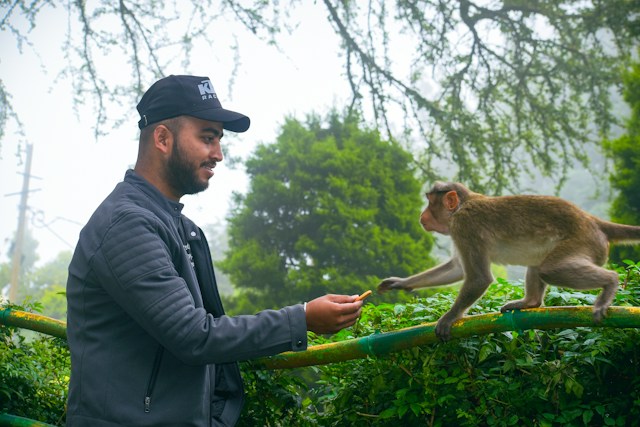While some people may find the idea of having a monkey as a pet appealing, it’s important to consider that keeping a monkey as a pet comes with significant challenges and ethical considerations. Here are some points to keep in mind:
- Legal Restrictions: It’s important to understand that in many countries, the sale of pet monkeys is strictly regulated or even banned outright. Before considering a monkey as a pet, it’s important to research and understand the local and national laws regarding exotic pets. This will help ensure you are in compliance with the regulations and can provide the best care for a pet monkey if it is legal to own one in your area.

Photo by Pavan Kumar Nagendla on Unsplash - Specialized Care: Monkeys are fascinating creatures with unique needs that can be quite challenging to meet in a typical household setting. They require specialized care, diet, and living conditions to thrive. Providing for their physical and emotional needs can be difficult for most individuals. As such, it’s important to thoroughly research and understand the requirements of keeping a monkey as a pet before considering it as an option. Consulting with experts and professionals in primate care is crucial to ensure the well-being of these intelligent animals.
- Behavioral Challenges: monkeys are wild animals and have natural instincts and behaviors that can make them challenging to handle as pets. They can become aggressive, destructive, or suffer from stress and anxiety when kept in captivity. It’s important to consider the welfare and needs of the animal before deciding to keep a monkey as a pet. It’s always best to consider adopting a pet that is better suited for domestic life.
- Health Risks: Monkeys can carry zoonotic diseases that can be transmitted to humans. Maintaining proper hygiene and veterinary care for a monkey can be complicated and costly.
- Long Lifespan: Many monkey species have a long lifespan, often reaching several decades. Committing to care for a monkey is a significant and long-term responsibility.
- Social Needs: Monkeys are highly social animals and usually live in groups in the wild. Keeping a monkey alone can lead to loneliness and behavioral issues. Additionally, integrating a monkey into a human household may not provide the socialization and companionship they need.

Photo by Alev Takil on Unsplash - Training Difficulties: Training a monkey is not like training a dog or cat. They have different cognitive abilities, and their behavior can be challenging to manage. Improper training may result in aggression or other problems.
- Conservation Concerns: The exotic pet trade poses a threat to wild populations of monkeys. Supporting this trade can contribute to the decline of their populations and disrupt ecosystems.
Monkeys are not domesticated animals like dogs and cats. While they may appear cute and intelligent, they have specific needs that are best met in their natural habitat or in reputable sanctuaries and wildlife rehabilitation centers. If you are interested in primates and one to buy one like squirrel monkey, consider supporting conservation efforts, education, or volunteering at organizations that work towards the well-being of these animals in a responsible and ethical manner.

